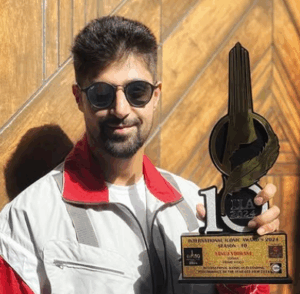Table of Contents
SSC Scientific Assistant Syllabus for IMD Recruitment
The Staff Selection Commission has come with the Recruitment Notice of Staff Choice of Scientific Assistants in the Indian Meteorological Department or IMD. A total of 1102 vacancies have been released. If you are a graduate in Science with Physics/Computer Science or a Diploma Holder with Electronics & Telecommunication, then you can surely apply for the same! If you are going to apply for this post of IMD’s Scientific Assistants then you must be wondering about SSC Scientific Assistant Syllabus & Exam Pattern for 2017. Read below to know in detail about the detailed syllabus of Scientific Assistants .Every year government releases vacancies in thousands for different exams and a lakh of candidates apply for the examination. The different examination has different syllabus and the exam patterns and we here update the syllabus and the exam patterns according to the exam and serve for the aspirants to prepare for the examination.
SSC Scientific Assistant Exam Pattern Updates
Before we study the SSC Scientific Assistant Syllabus for the Computer based Exam, we should know about the Exam Pattern in detail. Given below is the Exam Pattern for SSC Scientific Assistants 2017.
| Paper | Paper Name | No of Qs |
Time |
| Part I | General Intelligence & Reasoning |
25 | 120 Min |
| Quantitative Aptitude |
25 | ||
| General Awareness |
25 | ||
| English language & Comprehension |
25 | ||
| Part II | Physics, Computer Science & IT, Electronics & Telecommunication Engineering |
100 |
- The above is SSC Scientific Assistants Exam Pattern for IMD .
- The exam is for 200 marks and a total of 200 questions will be asked.
- Both Part I & Part II of this exam will be conducted as a Computer Based Test.
- There will be negative marking of 0.25 marks or 1/4th for each answer wrongly marked.
Detailed SSC Scientific Assistant Syllabus – Part I
The following is the in-depth SSC Scientific Assistant Syllabus for IMD 2017. This Syllabus comprises of the topics on which questions would be asked in the Part I & Part II of the Computer Based Examination.
A. General Intelligence & Reasoning
The topics that will be used in this section are as follows:
- Analogies,
- Similarities,
- Differences,
- Space visualization,
- Problem Solving
- Analysis,
- Judgment
- Decision making,
- Visual memory,
- Discrimination,
- Observation,
- Relationship Concepts
- Arithmetical Reasoning,
- Verbal and Figure Classification
- Arithmetical number Series etc.
B. Quantitative Aptitude
- Whole Numbers,
- Decimals
- Fractions and Relationships between numbers,
- Percentage,
- Ratio & Proportion,
- Square roots,
- Averages,
- Interest,
- Profit and Loss,
- Discount,
- Partnership Business,
- Mixture and Alligation,
- Time and Distance,
- Time & Work,
- Basic Algebraic Identities of School Algebra & Elementary Surds,
- Graphs of Linear Equations,
- Triangle and its various Kinds of centers,
- Congruence and similarity of triangles,
- Bar diagram & Pie chart
Other Important Topics:
Circle and its chords, tangents, angles subtended by chords of a circle, common tangents to two or more circles, Triangle, Quadrilaterals, Regular Polygons, Circle, Right Prism, Right Circular Cone, Right Circular Cylinder, Sphere, Hemispheres, Rectangular Parallelepiped, Regular Right Pyramid with triangular or square base, Trigonometric ratio, Degree and Radian Measures, Standard Identities, Complementary angles, Heights and Distances, Histogram, Frequency polygon, etc.
C. English Language & Comprehension
- English Grammar,
- Vocabulary,
- Spellings,
- Synonyms and Antonyms,
- Comprehension,
- Correct and Incorrect usages, etc.
D. General Awareness
- General Physical, Geographical, Topographical, Economic and Climatic features of India.
- Current Events.
- Matters of everyday observation and experience on Scientific Aspects and Reasoning.
- Basic topics of Mathematics, Chemistry, and Physics.
- History of India, its Cultural Heritage, Freedom Movement
- Salient Feature of the Constitution of India.
- Economic and Social aspect of the country and its people.
Detailed SSC Scientific Assistant Syllabus – Part II
A. Physics
- All the major topics covered in class 11th and 12th .
B. Computer Science & Information Technology
- Computer:History of Computer and their classification, Basic Organization, Memory – RAM, ROM, EPROM, etc, Magnetic-Floppy, Hard disks, CDROM, WORM etc, Concept of Virtual Memory and Cache Memory, Number systems, binary octal, Hexadecimal, Binary Addition, Subtraction and Multiplication, Flotation, point representation and arithmetic, Arithmetic through stacks.
- Operating systems: assemblers, elements of Assembly language programming-Overview of the Assembly process, assembler for the IBM PC, Process synchronization, Memory Management – address Binding – dynamic Loading and linking – overlays – logical and Physical address space – Contiguous Allocation – internal& External Fragmentation. Non-Contiguous Allocation: Paging and Segmentation Schemes – Implementation – Hardware Protection – Protection – sharing – Fragmentation.
- Virtual Memory: Demand Paging – Page Replacement – Page Replacement algorithms – Thrashing
- File System: File Concepts – Assess Methods – Directory Structures – Protection Consistency Semantics – File system Structures – Allocation Methods – Free Space Management.
- I/O System: Overview – I/O hardware – Application I/O Interface – Kernel I/O subsystem, Performance, Secondary Storage Structures, Protection, Goals, Domain – Access matrix.
- Assemblers: Elements of assembly language programming – Overview of the Assembly process – Design of a low-pass Assembler – a single pass Assembler for the IBM PC. The security Problem – Authentication – Threats – Threat Monitoring – Encryption.
- Fundamentals of programming: Unix Programming, Programming in FORTRAN, C, Object Oriented Programming in C++, programming in Java, Basics of compilers.
- Database Management Systems:Advantages and components of a Database Management Systems, Data Types, Data Dictionary, Query Basics, Forms and Reports, Graphical objects, Error Handling, Distributing Application, Data Storage Methods, Data Clustering and Partitioning, Database Administration, Backup and Recovery, Security and Privacy, Distributed Databases, Client/Server Databases, Object-Oriented Databases, Integrated Applications, SQL, RDBMS.
- Internet Technology: Basics, topologies, layers, switching in the networks, bridges, routers and gateways, types of networks, WWW. Client/Server Applications, Internet Standards and specifications, ISP, BroadBand Technologies, Protocols, web-servers, browsers, and security, firewalls, date security, HTML, dHTML, XML, Web designing.
- Fundamentals of Geographical Information System (GIS): GIS Data and Spatial Models, Topology ad Spatial Operations, Projections, Scale and Coordinate Systems, Mapping, GIS Analysis, Cartography. Basics of GIS application development.
C. Electronincs & Telecommunication
i. Electronics
- Conductors,
- Semi-conductors
- Insulators,
- Magnetic, Passive components,
- characteristics of Resistors, Capacitors and inductors.
- PN Junction diode, forward and reverse bias characteristics and equivalent circuits of diode,
- Zener diode and applications, clipping, clamping and rectifier circuits using diodes.
- Bipolar Junction Transistors (BJT) Field Effect Transistor (FET) and MOSFET;
- Biasing and stability, Emitter follower and its applications – Negatives feed back-Transistor as a switch,
- Multistage Amplifiers, Feedback, Oscillators, Multivibrators, Voltage regulation, Power amplifiers.
- Introduction to Network Theorems:
- Kirchoff‟s laws, superposition,
- Thevenin’s Norton’s and Maximum power theorems.Voltage and Current relationship in the resistance,
- inductance and capacitance. Concept of reactance, susceptance, conductance, impedance and admittance in series and parallel RL, RC and RLC circuits – Three phase supply-star and delta connection diagrams – Relation between line and phase & voltages and currents, series and parallel resonance circuits – condition of resonance, resonant frequency, Q factor and bandwidth.
- Digital electronics:– Logic gates, Demorgan‟s theorem, Boolean algebra, frequency counters, flip-flops, shift resistors, Basic concepts of Digital to Analog and Analog to Digital Converters, Timing circuits, Digital logic circuits, systems codes Combinational logic design.
ii. Telecommunication
- Basic antenna principle directive gain,
- directivity, radiation pattern, broad-side and end-fire array,
- Yagi antenna, Parabolic antenna, Ground wave propagation, space waves, ionosphere propagation and electromagnetic frequency spectrum
- Modulation, types of modulation,
- Amplitude Modulation (AM), Modulation index, Power relation in AM, Generation and Demodulation of AM.
- Get: Current Affairs for SSC Exams
- Single Side Band (SSB): Power requirement in comparison with AM, Advantages of SSB over AM. Concept of Balanced Modulator, Generation of SSB, Pilot Carrier System. Independent Side System, Vestigial Sideband Transmission.
- Frequency Modulation (FM):Definition of FM, Bandwidth, Noise triangle, Pre-emphasis and De-emphasis.
- Pulse Modulation (PM): Definition of PM. Difference between AM and FM.
- Radio Sampling Theorem, PAM, PTM, PWM, PPM, pulse code modulation, Quantization noise, commanding, PCM system, differential PCM, Delta modulation.
- Multiplexing:FDM/TDM.
- Introduction of digital Communication: PSK, ASK, FSK, introduction to fiber optics system, Propagation of light in optical fibre and ray model.
- Propagation of signals at HF, VHF, UHF and microwave frequency and satellite communications.
This was the Detailed SSC Scientific Assistant Syllabus for Indian Meteorological Department 2017. Start your preparation for this exam with the help of this Detailed Syllabus. If you want to know the syllabus of many other exams conducted by SSC, you can visit current-affairs.org.
Visit Current-Affairs.org for the current affairs, previous year question papers, online quiz for the competitive exams and many more. If you need more question paper comment down your email id.



